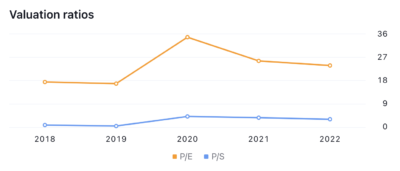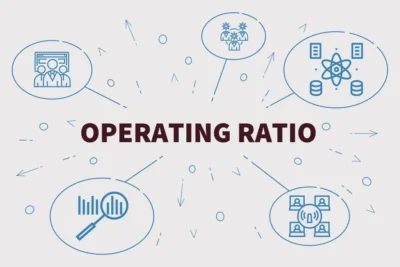The Kennedy Funding lawsuit centers around allegations of unethical lending practices by Kennedy Funding lawsuit, a prominent commercial real estate lender. The lawsuit accuses the company of engaging in predatory lending tactics, including misleading borrowers about the terms and conditions of loans, and enforcing onerous repayment terms that led to significant financial harm for the borrowers involved. These practices have brought the company under intense legal scrutiny, with plaintiffs seeking substantial damages and reforms in the company’s lending policies.
Kennedy Funding lawsuit has firmly denied the allegations, asserting that all its lending practices are within legal boundaries and comply with industry standards. The company argues that the terms of their loans were clearly outlined and agreed upon by the borrowers, who were fully informed of the obligations they were undertaking. The outcome of this legal battle could have far-reaching implications for the commercial lending industry, potentially prompting changes in how lenders structure and communicate the terms of their financial products.
Table of Contents
What is the Kennedy Funding lawsuit about?
The Kennedy Funding lawsuit revolves around allegations that the company engaged in deceptive and predatory lending practices, specifically targeting vulnerable borrowers in the commercial real estate sector. Plaintiffs in the lawsuit claim that Kennedy Funding misrepresented the terms of their loans, leading to unexpected and burdensome financial obligations. These allegations include claims that the company imposed excessive fees, provided misleading information about interest rates, and enforced onerous repayment schedules that were nearly impossible for borrowers to meet. As a result, many borrowers faced severe financial difficulties, including foreclosure and loss of their properties.
Central to the lawsuit is the accusation that Kennedy Funding lawsuit exploited its borrowers’ lack of understanding or access to alternative financing options. The plaintiffs argue that the company took advantage of these borrowers by offering loans with terms that were intentionally structured to benefit Kennedy Funding lawsuit at the borrowers’ expense. This has led to claims that the company violated fair lending laws and engaged in fraudulent business practices. The lawsuit seeks not only financial compensation for the affected borrowers but also calls for regulatory changes to prevent similar practices in the future.
Kennedy Funding lawsuit, however, has strongly denied these allegations, maintaining that all of its lending practices are transparent and within the bounds of the law. The company asserts that it provided clear and accurate information to all borrowers and that the terms of the loans were mutually agreed upon. Kennedy Funding’s defense is centered on the argument that the borrowers were fully aware of the loan conditions and that any financial difficulties they encountered were due to external economic factors, not any wrongdoing by the company. The outcome of this lawsuit could have significant implications for the commercial lending industry, particularly in how lenders communicate loan terms and manage borrower relationships.
When did the Kennedy Funding lawsuit start?
The Kennedy Funding lawsuit began in 2023, following a series of escalating complaints and legal challenges from borrowers who alleged that the company engaged in unfair lending practices. The initial spark for the lawsuit was a group of commercial real estate borrowers who claimed they were misled about the terms of their loans. They argued that Kennedy Funding lawsuit had concealed critical information about the fees, interest rates, and repayment schedules, leading them into financial arrangements that were far more burdensome than they had anticipated. These early complaints laid the groundwork for a broader legal action, as more borrowers came forward with similar allegations.
It attracted significant attention from both the media and the legal community. By mid-2023, several plaintiffs had formally filed suit against Kennedy Funding, accusing the company of systemic predatory lending practices that targeted financially vulnerable borrowers. The case quickly expanded as more individuals and businesses joined the lawsuit, each presenting evidence that they had been similarly misled and financially harmed by the company’s loan agreements. The mounting legal pressure led to a series of court filings and pre-trial hearings throughout the year, drawing closer scrutiny to Kennedy Funding lawsuit business practices.
Throughout late 2023 and into 2024, the lawsuit continued to develop, with both sides presenting their arguments and evidence. Kennedy Funding maintained its stance that all its lending practices were legal and that borrowers were fully informed of the loan terms. Despite these assertions, the lawsuit has continued to grow in scope, with additional plaintiffs joining and new claims being added. The legal proceedings are ongoing, with the case expected to have far-reaching implications for the commercial lending industry, particularly in how transparency and fairness are enforced in loan agreements.
What are the main allegations in the Kennedy Funding lawsuit?
The Kennedy Funding lawsuit centers around several serious allegations brought forward by a group of borrowers who claim that the company engaged in deceptive and predatory lending practices. The primary allegation is that Kennedy Funding lawsuit misled borrowers about the true terms of their loans, particularly regarding interest rates, fees, and repayment schedules. Plaintiffs argue that the company provided them with incomplete or inaccurate information, which resulted in them agreeing to loan terms that were far more costly and burdensome than they had anticipated. These alleged practices have been described as intentionally designed to benefit Kennedy Funding at the expense of its borrowers, many of whom were already in financially vulnerable positions.
Another significant allegation in the lawsuit is that Kennedy Funding lawsuit imposed excessive and undisclosed fees on borrowers, which drastically increased the cost of the loans. Plaintiffs claim that these fees were either not clearly communicated or were added after the loan agreements were signed, leaving borrowers with little recourse to challenge them. The lawsuit also suggests that Kennedy Funding’s repayment terms were structured in such a way that made it nearly impossible for borrowers to meet their obligations, leading to defaults and, in some cases, the foreclosure of properties. These actions are alleged to have caused severe financial distress for many of the borrowers involved.
The plaintiffs accuse Kennedy Funding of engaging in predatory lending tactics that took advantage of their lack of access to alternative financing options. The lawsuit argues that the company specifically targeted borrowers who were in desperate financial situations, offering them loans with terms that were almost guaranteed to lead to failure. This, in turn, allowed Kennedy Funding lawsuit to profit from the borrowers’ struggles, either through the collection of exorbitant fees or by taking possession of collateral through foreclosure. The cumulative effect of these allegations paints a picture of a lending institution that prioritized its own financial gain over the well-being of its clients, leading to the current legal battle.
How has Kennedy Funding lawsuit responded ?
Kennedy Funding has responded to the lawsuit with a firm denial of all allegations, asserting that the company has always operated within legal and ethical boundaries. The company contends that the loans provided to borrowers were offered with clear terms and conditions, which were fully disclosed and agreed upon by the borrowers at the time of the agreements. Kennedy Funding argues that the plaintiffs in the lawsuit were fully informed of the financial obligations they were undertaking and that any claims of deception or predatory practices are unfounded. The company maintains that the financial difficulties faced by the borrowers are the result of external economic factors, not any wrongdoing on their part.
Kennedy Funding lawsuit has emphasized that they followed standard industry practices in structuring their loans. The company asserts that the interest rates, fees, and repayment schedules associated with the loans were consistent with market norms and were clearly outlined in the loan agreements. Kennedy Funding’s legal team has argued that the borrowers had ample opportunity to review and understand the loan terms before signing, and that the allegations of hidden fees or misleading information are baseless. The company is also likely to present evidence demonstrating that it acted in good faith throughout the lending process.
Kennedy Funding has suggested that the lawsuit is an attempt by the plaintiffs to shift blame for their financial troubles onto the lender, rather than taking responsibility for their own decisions and economic challenges. The company has indicated that it will vigorously defend its reputation and business practices in court, and it remains confident that the legal process will ultimately vindicate its position. Kennedy Funding’s response to the lawsuit reflects a strategy of challenging the credibility of the plaintiffs’ claims while upholding the legitimacy of its lending operations.
What legal grounds support the Kennedy Funding lawsuit?
The Kennedy Funding lawsuit is primarily supported by legal grounds rooted in allegations of deceptive and predatory lending practices, which may violate various consumer protection laws. One of the key legal foundations of the lawsuit is the claim that Kennedy Funding engaged in fraud by misrepresenting the terms of the loans provided to borrowers. Plaintiffs allege that the company failed to disclose critical information about the interest rates, fees, and repayment schedules, or that it provided misleading information that led borrowers to agree to unfavorable terms unknowingly. This alleged misrepresentation could be a violation of state and federal laws that prohibit deceptive business practices, particularly in the lending industry.
Another significant legal ground supporting the lawsuit is the accusation of breach of contract. Plaintiffs argue that Kennedy Funding did not adhere to the agreed-upon terms of the loan contracts, either by imposing additional fees that were not originally disclosed or by altering repayment conditions after the contracts were signed. These actions, if proven, would constitute a breach of the loan agreements, giving the borrowers a strong legal basis for seeking damages. The breach of contract claims is often central to lawsuits involving financial institutions, as they directly address the failure of one party to fulfill their contractual obligations as originally stipulated.
The lawsuit may invoke claims under consumer protection statutes that are designed to prevent predatory lending practices. These laws are intended to protect borrowers from unfair and exploitative practices by lenders, such as charging exorbitant fees or setting up loans in a way that makes default almost inevitable. If Kennedy Funding is found to have engaged in such practices, it could be held liable under these statutes, which often provide for significant penalties and damages. The plaintiffs’ legal strategy likely includes leveraging these consumer protection laws to argue that Kennedy Funding’s actions were not just unethical but illegal under existing regulations.
What is the current status of the Kennedy Funding lawsuit?
The Kennedy Funding lawsuit is currently ongoing, with both sides actively engaged in the legal process. As of the latest updates, the case has progressed through several preliminary hearings, where both the plaintiffs and Kennedy Funding have presented their initial arguments and evidence. The court has been evaluating motions from both sides, including motions to dismiss certain claims and requests for discovery, which will allow both parties to gather further evidence to support their respective cases. The lawsuit remains in the pre-trial phase, with no final decision or settlement reached yet.
Kennedy Funding continues to deny the allegations and is preparing a robust defense against the claims of deceptive and predatory lending practices. The company has filed various legal responses, aiming to counter the plaintiffs’ accusations and seeking to have parts of the lawsuit dismissed. The legal teams are also in the process of depositions and document reviews, which are crucial steps in building the case for trial. The complexity of the case, involving multiple plaintiffs and detailed financial agreements, suggests that it may continue for some time before reaching a conclusion.
It remains uncertain when a resolution will be achieved. The court’s decisions on upcoming motions and the results of the discovery process will play a significant role in shaping the future course of the litigation. Both parties are likely preparing for a potential trial, although there is always the possibility of a settlement before the case reaches that stage. Observers and stakeholders in the financial industry are closely watching the case, as its outcome could have significant implications for lending practices and regulatory standards.
How has the Kennedy Funding lawsuit impacted the company?
The Kennedy Funding lawsuit has had significant repercussions on the company’s reputation and operations. The public nature of the lawsuit has drawn considerable media attention, leading to negative publicity that has tarnished the company’s image within the financial industry. Clients and potential borrowers are likely to be more cautious in engaging with Kennedy Funding, given the allegations of deceptive and predatory lending practices. This has likely impacted the company’s ability to attract new business and maintain relationships with existing clients, as trust and credibility are crucial in the financial services sector.
The lawsuit may also be straining the company’s resources. Legal battles of this nature can be costly, requiring substantial investment in legal fees and related expenses. Additionally, the uncertainty surrounding the lawsuit’s outcome could have caused disruptions in Kennedy Funding’s day-to-day operations, as management and key staff might be focused on addressing the legal challenges rather than pursuing growth opportunities. This diversion of focus could have long-term effects on the company’s financial health and market position.
Beyond immediate financial and reputational damage, the lawsuit may also have broader implications for Kennedy Funding’s business practices. If the company is found liable or if the case results in a settlement, it could face stricter regulatory scrutiny and possibly be required to alter its lending practices. This could lead to operational changes, increased compliance costs, and a reevaluation of the company’s business model. Even if Kennedy Funding successfully defends against the lawsuit, the prolonged legal battle may lead to changes in how the company approaches transparency and client relationships in the future.
What are the potential outcomes of the Kennedy Funding lawsuit?
The Kennedy Funding lawsuit could result in several potential outcomes, each carrying significant implications for the company and the broader financial industry. One possible outcome is that the court could rule in favor of the plaintiffs, finding Kennedy Funding liable for the alleged deceptive and predatory lending practices. If this occurs, Kennedy Funding might be ordered to pay substantial damages to the affected borrowers, which could include compensation for financial losses and punitive damages designed to deter similar conduct in the future. This outcome could also lead to court-mandated reforms in Kennedy Funding’s lending practices, potentially imposing stricter transparency and fairness requirements on the company.
Another potential outcome is that Kennedy Funding could reach a settlement with the plaintiffs before the case goes to trial. Settlements are often used to avoid the uncertainty and expense of a lengthy trial. In this scenario, Kennedy Funding might agree to pay a negotiated amount to the plaintiffs without admitting any wrongdoing. A settlement could also involve commitments to change certain business practices, as well as confidentiality clauses that prevent the details from being disclosed publicly. While a settlement could mitigate some of the financial and reputational damage, it would still likely impact the company’s standing in the industry.
Kennedy Funding could successfully defend against the allegations, resulting in a dismissal of the lawsuit. If the company is able to demonstrate that it operated within legal boundaries and that the plaintiffs’ claims are unfounded, it could emerge from the lawsuit without liability. However, even a favorable ruling may not fully repair the reputational harm caused by the public nature of the legal proceedings. Regardless of the outcome, the lawsuit is likely to have lasting effects on how Kennedy Funding and similar companies are perceived and regulated within the commercial lending industry.
Has there been any settlement in the Kennedy Funding lawsuit?
As of the most recent updates, there has not been any reported settlement in the Kennedy Funding lawsuit. The case is still ongoing, with both parties actively involved in legal proceedings. The lawsuit is in the pre-trial phase, with motions, discovery, and other preparatory steps being taken by both sides. Settlement discussions are a possibility in any lawsuit, especially as the case progresses and both parties evaluate the risks and potential outcomes of a trial. However, no official settlement has been announced, and the legal battle appears to be heading toward a more extended court process.
Kennedy Funding has consistently maintained its stance of denying the allegations and defending its lending practices as legal and ethical. Given the complexities and the potential financial implications, both parties might consider settlement options as the case develops, but any such discussions would likely be confidential until a formal agreement is reached. Settlements often occur behind closed doors, and if a settlement were to happen, it might not be disclosed until all parties have agreed to the terms.
If a settlement is reached in the future, it could involve financial compensation to the plaintiffs and possibly commitments by Kennedy Funding to modify certain business practices. However, until such an agreement is made and publicly disclosed, the lawsuit remains unresolved, and the legal proceedings continue to move forward toward a potential trial.
What are the key legal arguments in the Kennedy Funding lawsuit?
The Kennedy Funding lawsuit hinges on several key legal arguments that are central to the plaintiffs’ case against the company. The primary legal argument is that Kennedy Funding engaged in deceptive and predatory lending practices, which allegedly violated consumer protection laws. Plaintiffs assert that the company misrepresented the terms of the loans, including interest rates, fees, and repayment schedules, leading borrowers to enter into agreements that were far more burdensome than they understood. This misrepresentation is argued to constitute fraud, as it involved intentional deception for financial gain, violating state and federal laws that safeguard borrowers from such practices.
Another significant legal argument in the lawsuit is the claim of breach of contract. Plaintiffs allege that Kennedy Funding failed to adhere to the terms of the loan agreements, either by imposing additional fees that were not disclosed at the time of signing or by altering repayment conditions post-agreement. This breach of contract is a serious allegation, as it suggests that Kennedy Funding did not fulfill its legal obligations under the agreed-upon contracts, thus causing financial harm to the borrowers. The plaintiffs seek to hold Kennedy Funding accountable for these alleged breaches, which they argue were a deliberate strategy to maximize profit at the expense of borrowers’ financial well-being.
Kennedy Funding has mounted a defense centered around the argument that all loan terms were fully disclosed and agreed upon by the borrowers. The company contends that the plaintiffs were fully informed of the loan conditions and that any financial difficulties they encountered were due to external factors, not any misconduct by Kennedy Funding. This defense also challenges the plaintiffs’ claims of misrepresentation and breach of contract, asserting that the contracts were honored as written and that the plaintiffs’ allegations are unfounded. The legal battle thus revolves around these contrasting narratives, with the court tasked with determining the validity of the claims and defenses presented.
How has the media covered the Kennedy Funding lawsuit?
The media coverage of the Kennedy Funding lawsuit has been extensive, with various outlets focusing on the allegations of deceptive lending practices and the potential impact on both the company and the broader financial industry. Reports have detailed the plaintiffs’ claims that Kennedy Funding engaged in predatory lending, misrepresenting loan terms and imposing excessive fees, which led to severe financial hardships for many borrowers. This narrative has been highlighted by news organizations as an example of the risks associated with certain commercial lending practices, drawing public attention to the ethical and legal responsibilities of lenders.
Media outlets have also scrutinized Kennedy Funding’s response to the allegations. Coverage has often included statements from the company denying any wrongdoing and asserting that all loan terms were clearly communicated to borrowers. The media has reported on the legal strategies employed by both sides, with some analysis suggesting that the case could set important precedents for how similar lawsuits might be handled in the future. This ongoing coverage has kept the lawsuit in the public eye, with updates on court proceedings and expert commentary on the potential outcomes.
The lawsuit’s broader implications for the financial industry have also been a focus of media attention. Articles and reports have discussed how the case could influence regulatory changes and impact the lending practices of other companies. The media has framed the lawsuit as not just a legal battle between Kennedy Funding and the plaintiffs but as a significant case that could lead to increased scrutiny of lending practices across the industry. This angle has amplified the case’s relevance, making it a topic of discussion among financial analysts, legal experts, and the general public.
What broader implications does the Kennedy Funding lawsuit have for the industry?
The Kennedy Funding lawsuit has significant broader implications for the commercial lending industry, particularly in terms of regulatory scrutiny and industry practices. One major implication is the potential for increased regulatory oversight of lending practices, especially regarding transparency and fairness in loan agreements. If the plaintiffs’ allegations are proven true, it could prompt regulators to impose stricter rules on how lenders disclose loan terms and fees to borrowers. This could lead to the implementation of new compliance requirements aimed at preventing deceptive or predatory practices, fundamentally altering how loans are structured and marketed within the industry.
The lawsuit highlights the importance of ethical business practices in maintaining consumer trust and industry reputation. The extensive media coverage and public scrutiny surrounding the case have brought to light the risks associated with aggressive lending strategies that prioritize profit over borrower well-being. This could lead to a shift in industry standards, with lenders adopting more conservative and transparent approaches to avoid legal challenges and protect their reputations. The case serves as a cautionary tale, emphasizing the need for lenders to balance profitability with ethical considerations to sustain long-term success in the marketplace.
The Kennedy Funding lawsuit could influence how courts interpret and enforce contracts in the lending industry. Depending on the outcome, the case may set legal precedents regarding the enforceability of loan terms and the responsibilities of lenders in ensuring that borrowers fully understand the agreements they enter into. This could impact not only commercial lenders but also the broader financial services industry, leading to changes in how contracts are drafted and disputes are resolved. The potential ripple effects of this case underscore its significance, not just for Kennedy Funding, but for the entire lending sector.












